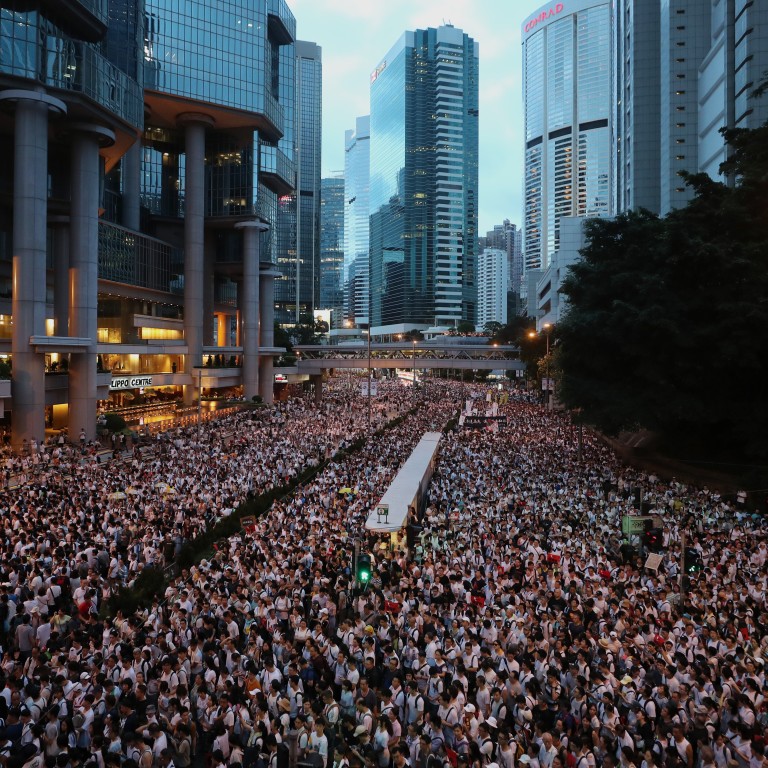
About 100 businesses pledge to close doors to allow workers to join another protest against Hong Kong’s controversial extradition bill
- Growing list of firms, including bakeries, toy stores and snack shops, say they will close on Wednesday as bill gets second reading in legislature
- Organisers say more than a million took to streets on Sunday to voice anger over proposed legislation
As of Monday evening, a growing list of about 100 businesses, including bakeries, toy stores and snack shops, said they would close their doors.
Some said they hoped more businesses would follow suit to protest against the bill, which would allow criminal suspects to be transferred to jurisdictions with which Hong Kong has no extradition deal, including mainland China.
Art galleries to close Wednesday in extradition bill protest
A business owner, who did not want to be named, said she would close her four shops so her 15 employees could join the protest.
“We are a small company and I think the least we can do together is join this protest and shut down the business for a day even though we have costs to pay. We have to pay the rent and everything,” she said.
“Everyone in the company has the same belief, we’re like, let’s join this for one day and see how it goes. Even though some people may say it’s useless and the government might not hear us, I just feel that if we don’t do anything now, we will regret it in the future. If not now, when?”
The owner said she marched on Sunday and was frustrated that officials refused to hear their demands.
As it happened: How protest march against extradition bill turned ugly
According to the organiser Civil Human Rights Front, 1.03 million people took part in the march although police had a more conservative estimate of 240,000 for the protest’s peak.
The list of businesses started with only 20 in the morning but had grown to about 100 by the evening.
Explaining its reasons for closing on Wednesday, snack shop Jar Gor 1996 wrote on its Facebook page that it feared Hong Kong would become increasingly different. Halina Tam Siu-wan, who was crowned Miss Hong Kong in 1994, owned the shop.

The Wuso, a toy shop in Mong Kok, also announced its decision on Facebook and said: “We hope people from all sectors will tolerate all kinds of fights. Stop resisting our brave teenagers.”
Lawyer Michael Vidler said he would allow his 12 employees to “act in accordance with their conscience” on Wednesday and not go to work. He believed they would attend the protest.
Protests loom for teachers, social workers as Catholic Church urges calm
Two hours after Sunday’s march ended at about 10pm, clashes broke out between hundreds of protesters and police, bringing a violent end to a peaceful rally.
Officers and protesters suffered injuries, some needing hospital treatment, as police used batons and pepper spray to beat back a mob of masked demonstrators trying to storm the Legco building.


